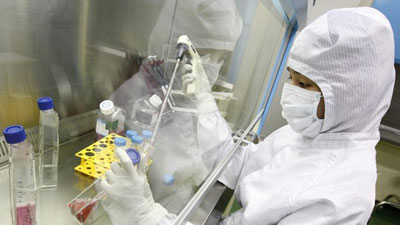By Caribbean Medical News Staff
Researchers have recently made a major discovery into HIV studies. The findings suggest that if the virus is incapable of accessing sugar and other nutrients after infecting a cell, it is powerless to multiply itself and, hence, unable to develop.
The US based specialists were able to utilize a new trial compound to lock down the sugar and nutrient pipeline in immune cells, thus starving the virus to death.
One researcher says, “This compound can be the precursor for something that can be used in the future as part of a cocktail to treat HIV that improves on the effective medicines we have today.”
The virus grows in particular types of immune cells called CD4+ T cells. When these cells are active, responding to pathogens in the blood, their supplies of sugar and other nutrients necessary for growth are increased. The virus purposefully seeks out activated T cells and takes control their glucose stores.
A major dynamic of the discovery was that turning on a cell component called phospholipase D1 (PLD1) signalled for activated T cells to increase their supplies of sugar and the vital nutrients. Through blocking this component, the scientists were able to in turn block the sugar channel, therefore dispossessing the invading HIV of the building blocks (sugar) required for it to develop.
In an earlier attempt to thwart the virus from pilfering immune cells’ sugar and nutrients using drugs in the 1990s, proved not only ineffective, but the drugs also led to serious side effects in patients with the virus and is some cases as with Chemotherapy, ended up killing healthy cells as well.
This new technique is not only safer but has upregulated effects of slowing the spread of abnormally activated immune cells. The virus activates the excess activation and growth of T cells which can lead to inflammation in the body, causing premature organ damage in patients with HIV even when the virus is suppressed by medicine.
The researchers contemplated whether blocking this same cell component in CD4+ T cells would have a similar effect in slowing the spread of HIV by blocking the supply of glucose and nutrients. They tested their hypothesis in vitro and, sure enough, the virus was unable to access enough resources to duplicate.
Based on the tremendous progress made in their most recent study, the researchers remain fully optimistic and believe that future breakthroughs are on the horizon.














